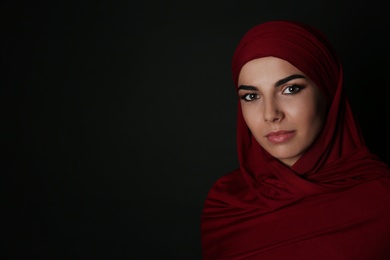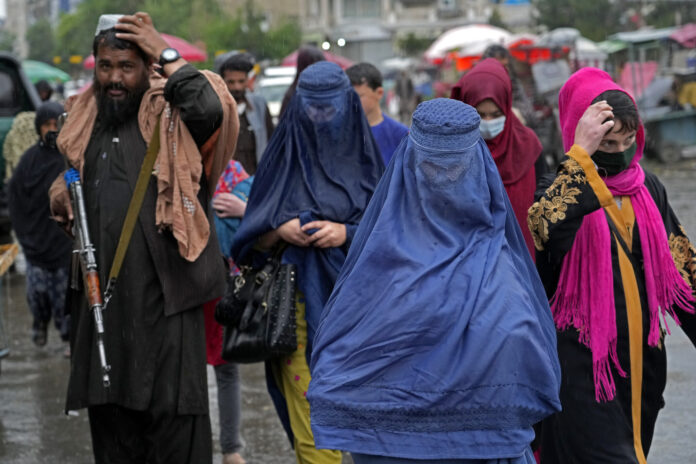Afghan women are certainly the real guardians of our national honor. They are the foremost educator of the human race and the real symbols of Afghan pride and dignity.
I believe that the vast majority of Afghan women throughout history have remained committed to the principles of Islam and Afghan tradition regarding the hijab. However, they have still been subject to regulations by political leadership under the title of reforms.
Both religious and secular extremists have vastly victimized women. Some initiated to force them to adopt the external culture, urging for the removal of the hijab and some tried to exaggerate and oversize the obligatory hijab, but the most unfortunate discrimination towards women in Afghanistan recently is their forced abandonment from education, not hijab.
We have seen all the oppressive scenarios, where Afghan women defended their dignity and honor against any kind of aggression till the end, fought for the protection of their pride within the framework of religion and national values, while their heads could not be bowed to any oppressors either.
Let’s have a glance at the history where Queen Suraya (King Amanullah Khan’s wife) was one of the first women to convene four grand meetings at the Star Palace of the Ministry of Foreign affairs. Each meeting was attended by more than 600 senior government officials and foreign diplomats, along with their wives.
Speaking on the fourth day of the meeting, the king said he wanted to abolish the practice of wearing the burqa on women in the next two months, but that it would be optional, not imperative. Amanullah Khan said that Burqa was not a sharia hijab and women would wear a Turkish-style handkerchief tied under the chin.
At the same meeting, Amanullah Khan asked his wife, Malika Suraya, to remove the veil from her head. The civilians did the same and the audience clapped their hands. Only a few women and girls in Kabul imitated Queen Suraya, but the removal of the veil provoked sensitivities and produced consequences that were devastating.
It is a matter of great pride that during the past two decades despite lots of incentives our Afghan sisters have shown their full commitment to their religious obligations and cultural values. There was no woman in Afghanistan, that could be unanimously called a woman without a hijab. We are proud of our Afghan women and pay tribute to their courage and determination.
Now it is a matter of great sorrow that despite all these tragedies and hardships inflicted on women in Afghanistan and their strong commitment to the roles of Islam, instead of having been honored and dignified, they are deprived of their right to get an education by IEA.
I know the women rights have been a focus of the world body in Afghanistan. I agree that women still face widespread discriminatory attitude and numerous human rights violations. The most painful aspect of the women rights violation is abandoning girls students from class seven to twelve from schools for almost a year, while there has not been any co-education school system in Afghanistan for decades.

Regarding the issue of Hijab, I firmly believe that the women in Afghanistan are in favour of hijab that is imperative in Islamic perspective, but It is a matter of great concern for us that why Muslim women obligatory hijab is always criticised by Western media and western culture?
Why Muslim women’s hijab is considered as a controversial symbol and sign of backwardness and in conflict with the progressive West? Why has this piece of cloth drawn so much attention and backlash?
it would be reasonable to recognise Muslim women beyond constructed binary identities of being either oppressed or security threats.
Islamic Hijab has been unreasonably presented as a symbol of extremist beliefs, and threat to Western values. These unrealistic perspectives about hijab, together with the extremist groups statements and terroris attacks in the name of Islam, has created a climate of hatred towards Muslims.
The concept of freedom is different in every society and every culture. If we want to decrease the level of conflicts in societies and civilizations, the most important, step to be taken in compliance with the article 4 of UN Declaration، regarding the elimination of decrimination on the basis of beliefs، is to develop understanding and acceptance of cultural diversities, social and individual perspectives.
We therefore, suggest for initiating joint international and Afghan efforts. The joint efforts must be focused on the points of mutual interests, have common significance and do not contradict the Islamic principles. For instance, getting inheritance, marriage working and most importantly the core issue of women education must be given preferences over other issues.
We would together have better achievements if we focus on education, marriage, working and getting heritage as women rights. These are the legitimate Islamic rights of women in Islam and the religious scholars can not deny.




